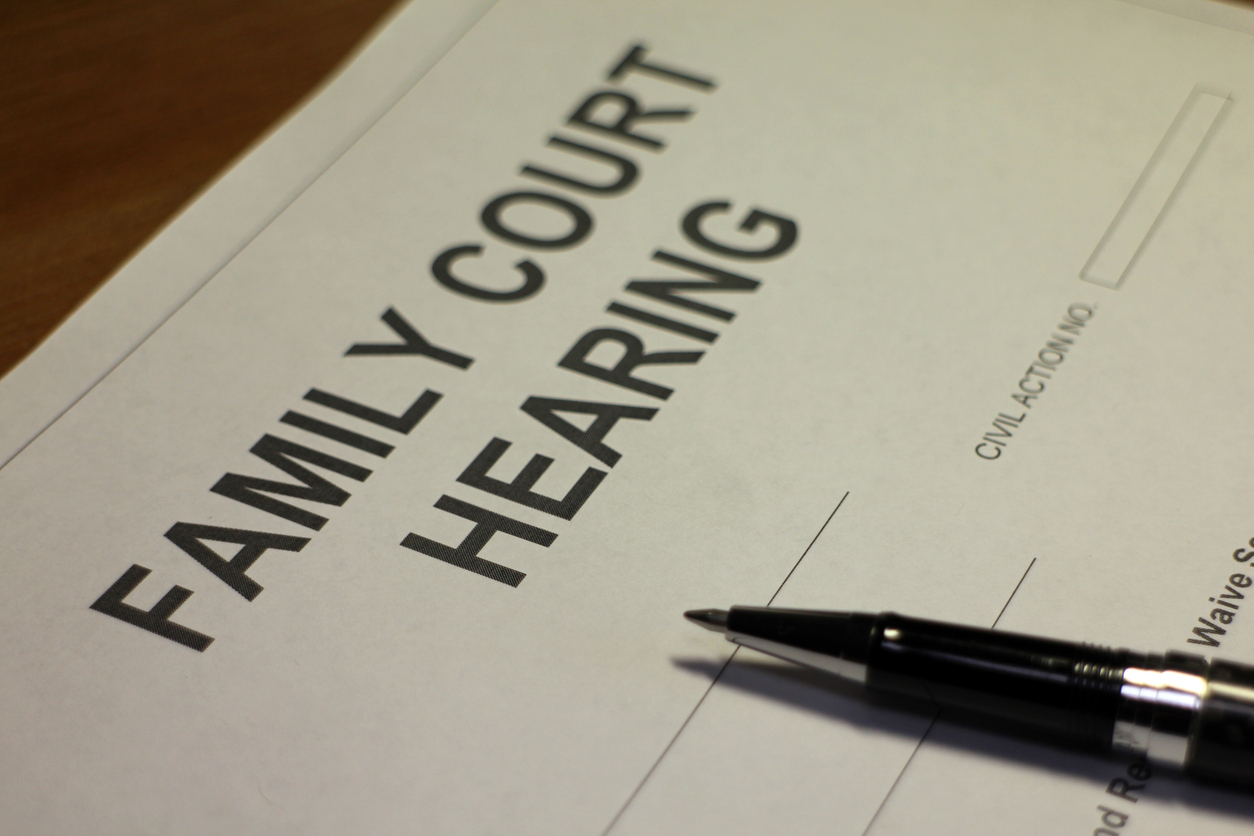What to Do If Your Ex Violates a Court Order
The divorce is finalized. The court orders are signed. You thought the most difficult part was over, but now your ex-spouse isn’t following the legally binding agreements you both committed to. Whether they’re missing child support payments, violating custody arrangements, or refusing to divide assets as ordered, these violations aren’t just frustrating—they’re unlawful and can severely impact your life and your children’s wellbeing.
When court orders are violated, you may feel helpless, angry, or unsure of your next steps. Should you confront your ex directly? Call the police? File for contempt of court? The options can seem overwhelming during an already stressful time. What many don’t realize is that there’s a systematic approach to addressing these violations—one that protects your rights while maintaining focus on what truly matters, especially when children are involved.
In this comprehensive guide, we’ll walk you through exactly what to do when facing court order violations, from understanding what constitutes a violation to exploring alternative dispute resolutions before taking legal action. We’ll cover emergency situations requiring immediate intervention, the importance of working with a qualified family law attorney, and strategies for preventing future violations so you can move forward with confidence and peace of mind.
Understanding Court Order Violations in Divorce Cases
When a divorce decree is finalized, both parties are legally bound to follow the court orders outlined in the document. Unfortunately, violations of these orders are common and can create significant stress and legal complications. Understanding the nature of these violations is crucial before taking any action.
Types of Commonly Violated Court Orders
Court order violations in divorce cases typically fall into three main categories:
- Custody and Visitation Orders: These violations occur when a parent fails to follow the established parenting time schedule, denies the other parent their court-ordered visitation rights, or makes decisions about the child without required consultation with the other parent. These violations can be particularly emotionally charged as they directly impact parent-child relationships.
- Support Orders: Financial obligations such as child support and alimony payments are frequently violated. When an ex-spouse fails to make timely payments despite having the means to do so, they may be in contempt of court. However, it’s important to note that circumstances like job loss may affect one’s ability to pay, which courts typically consider when evaluating contempt cases.
- Asset Division Orders: Following divorce, former spouses must adhere to court-mandated division of property and assets. Violations occur when one party fails to transfer property, liquidate assets, or pay settlements as directed in the divorce decree. For these orders to be enforceable through contempt, they must contain precise language detailing the obligations.
Differentiating Between Direct and Indirect Contempt
When a court order is violated, the violation may constitute contempt of court, which comes in two forms:
- Direct Contempt: This occurs in the presence of the court, such as disruptive behavior during proceedings or refusing to comply with a judge’s direct orders in the courtroom.
- Indirect Contempt: More common in divorce cases, indirect contempt happens outside the court’s presence. Examples include failing to pay child support, refusing to follow visitation schedules, or not completing required asset transfers. Proving indirect contempt requires filing a motion and presenting clear and convincing evidence of the violation during a contempt hearing.
Recognizing Intentional vs. Unintentional Violations
Not all violations are treated equally by the court:
- Intentional Violations: These occur when an ex-spouse willfully ignores court orders despite having the ability to comply. Courts view these violations more seriously and may impose stricter penalties, including fines, attorney’s fees, and in severe cases, incarceration.
- Unintentional Violations: Sometimes, violations occur due to circumstances beyond one’s control, such as job loss affecting ability to pay support, medical emergencies preventing visitation, or confusion about order requirements. Courts typically prefer rehabilitation over punishment in these cases, often implementing solutions like repayment plans rather than incarceration.
When evaluating a potential contempt case, courts consider whether the divorce orders are enforceable by contempt and if the ex-spouse has willfully ignored them despite having the means to comply. If there are questions of fraud or substantial changes in circumstances affecting the validity of the divorce decree, seeking a modification rather than filing for contempt might be more appropriate.
Now that we understand the types of court order violations and how they’re classified, let’s explore the first steps you should take when you discover your ex has violated a court order.
First Steps When Your Ex Violates a Court Order
Now that we understand what constitutes a court order violation in divorce cases, it’s crucial to know exactly what steps to take when you believe your ex-partner has violated a court order. Taking the correct initial actions can significantly impact your ability to enforce the order and protect your rights.
A. Documenting all violations with detailed records
Documentation is your most powerful tool when addressing court order violations. When you suspect your ex has violated an order:
- Create a chronological log of each violation, including dates, times, and specific details
- Save all communication (texts, emails, voicemails) that demonstrates the violation
- Collect supporting evidence such as canceled checks, signed receipts, or visitation logs
- Label all evidence as “exhibits” for easy reference later
- Maintain medical records if relevant to the violation
- Record unsuccessful attempts to resolve the situation
Thorough documentation serves two critical purposes: it strengthens your case if legal action becomes necessary and provides objective evidence rather than relying solely on personal testimony. Courts give significant weight to well-organized, detailed records when determining if a violation occurred.
B. Attempting direct communication when appropriate and safe
In some situations, direct communication may resolve the issue without court intervention:
- Address the violation specifically, referencing the exact court order language
- Communicate in writing when possible to maintain a record
- Remain factual and avoid emotional accusations
- Clearly state what compliance with the order would look like
- Set reasonable timeframes for resolution
However, direct communication is not always appropriate, particularly in cases involving past abuse or highly contentious relationships. Never put yourself or your children at risk when attempting to resolve violations. If direct communication feels unsafe or has failed in the past, proceed directly to legal remedies.
C. Prioritizing your child’s safety and well-being
When court order violations involve children, their wellbeing must remain the primary concern:
- Assess whether the violation creates any immediate safety concerns
- Maintain consistent routines for children despite the other parent’s non-compliance
- Avoid discussing the violation with or in front of children
- Document any effects the violation has on your children’s emotional state or behavior
- Consider temporary modifications to minimize harm while seeking enforcement
Remember that courts prioritize children’s best interests above all else. Your response to violations should reflect this same priority, even when facing frustrating circumstances.
With these crucial first steps completed, you’ll be well-positioned to explore alternative dispute resolution options, which we’ll discuss in the next section. While documenting violations and attempting appropriate communication are essential starting points, mediation and other collaborative approaches can often resolve issues more efficiently than returning to court.
Alternative Dispute Resolution Options
Now that we’ve covered the initial steps to take when your ex violates a court order, it’s worth exploring alternative dispute resolution options before escalating to formal legal proceedings. These approaches can save time, money, and emotional stress while still achieving compliance with court orders.
Working with a qualified mediator to resolve disagreements
When your ex violates a court order, mediation offers a structured yet less adversarial path to resolution. A qualified mediator—typically an attorney specializing in family law—serves as a neutral third party who facilitates communication between you and your ex-spouse. During mediation sessions, both parties can discuss the violation, express concerns, and work toward a mutually acceptable solution.
Mediators are trained in various legal fields, including family law matters such as:
- Divorce decree violations
- Custody arrangement breaches
- Child support payment issues
- Visitation schedule conflicts
The mediation process provides a forum where both parties can speak openly while the mediator guides the conversation toward productive outcomes that address the court order violation.
Benefits of resolving violations outside the courtroom
Resolving court order violations through mediation rather than returning to court offers several significant advantages:
- Cost-effectiveness: Mediation typically costs substantially less than litigation.
- Time efficiency: Scheduling mediation sessions is usually faster than waiting for court dates.
- Preservation of relationships: The collaborative nature of mediation can help maintain workable co-parenting relationships.
- Greater control: Both parties maintain decision-making power rather than leaving outcomes to a judge.
- Confidentiality: Unlike court proceedings, mediation communications are generally protected by confidentiality provisions under the Uniform Mediation Act.
When mediation is successful, the resulting agreement can be formalized and submitted to the court, potentially becoming an enforceable legal order with the same weight as the original court order.
When mediation is appropriate vs. when to escalate
Mediation is most appropriate when:
- Both parties are willing to participate in good faith
- The violation is not endangering a child or yourself
- Communication channels remain somewhat open
- There’s potential for compromise and understanding
- The breach is not part of a pattern of deliberate non-compliance
However, certain situations warrant immediate legal action rather than mediation:
- Repeated, willful violations of court orders
- Situations involving safety concerns or abuse
- When the other party refuses to participate in mediation
- Cases where substantial financial harm has occurred due to the violation
- When previous mediation attempts have failed
If a mediation agreement is reached but subsequently violated, you may need to pursue enforcement through legal channels. In such cases, the written agreement itself (though not the confidential communications during mediation) can be presented in court as evidence of non-compliance.
With these alternative dispute resolution options in mind, next we’ll explore the process of taking legal action for court order violations when mediation isn’t successful or appropriate for your situation.
Taking Legal Action for Court Order Violations
Now that we’ve explored alternative dispute resolution options, it’s important to understand what steps to take when these methods fail. When your ex continues to violate court orders despite attempts at resolution, taking legal action may become necessary.
Filing a motion for contempt of court: process and requirements
Filing a motion for contempt of court is a serious step that should be considered carefully. This legal remedy applies to violations of various court orders including child support, spousal support, and custody arrangements. Before proceeding, you must ensure four critical elements are present:
- A valid court order exists
- The other party was aware of the order
- The other party had the ability to comply with the order
- The other party willfully violated the order
The burden of proof lies with you as the moving party, making thorough preparation essential. Courts generally view contempt motions as a last resort, so ensure you’ve exhausted other options before filing. Frivolous motions for minor infractions can irritate judges and potentially result in you paying the other party’s attorney fees.
Gathering compelling evidence to support your case
Strong evidence is crucial when pursuing contempt charges. Since the burden of proof falls on you, collect documentation that clearly demonstrates:
- The specific terms of the original court order that were violated
- Proof that your ex knew about the order
- Evidence showing your ex had the means to comply
- Documentation of the actual violations (emails, texts, financial records, witness statements)
Be aware that the Fifth Amendment may protect your ex from being forced to testify in some circumstances, making your independent evidence even more important. The clearer and more precise the language in your original divorce decree, the easier it will be to prove violations, particularly regarding financial support and asset division.
Understanding potential penalties for the violating party
If the court finds your ex in contempt, several consequences may follow:
- Monetary judgments for unpaid support or other financial obligations
- Requirement to pay your attorney’s fees
- Fines
- Probationary terms allowing for compliance without immediate incarceration
- In severe cases, jail time (though courts generally prefer rehabilitation over punishment)
Courts typically aim to encourage compliance rather than punish, especially in cases like non-payment of child support due to job loss. In such situations, the court might order repayment plans instead of incarceration.
Before pursuing contempt charges, carefully weigh the potential financial and emotional costs against the likelihood of success. Legal proceedings can be expensive and stressful, with no guarantee you’ll recover what you’re owed or your legal fees.
With this understanding of the legal processes for addressing violations, we’ll next explore what to do in emergency situations requiring immediate action, where standard contempt proceedings may not provide sufficiently quick relief.
Emergency Situations Requiring Immediate Action
Now that we’ve explored the formal legal actions you can take when your ex violates a court order, it’s important to address situations that require swift intervention. Some violations present immediate dangers that cannot wait for standard legal proceedings.
When to file for emergency custody modifications
Emergency custody orders differ from temporary custody arrangements as they specifically address situations where a child’s safety is in immediate jeopardy. Valid grounds for seeking emergency custody modifications include:
- Immediate threats to your child’s physical or emotional wellbeing
- Severe neglect or unsafe living conditions
- Parental incapacity that endangers the child
When pursuing an emergency custody order, you must provide compelling evidence to support your claims. This may include:
- Medical records
- Witness statements
- Documentation of unsafe conditions
- Evidence of parental incapacity
The process typically begins with assessing the situation, ideally with guidance from a family law attorney. In extremely urgent cases, you may need to contact Child Protective Services for immediate intervention. Your attorney will help you file the necessary petition, which may lead to an expedited court hearing where a judge will evaluate factors such as:
- The immediacy of the danger
- The child’s preferences (if age-appropriate)
- History of abuse
- Stability of the current caregiving environment
Situations warranting police intervention
Some court order violations require immediate police involvement, particularly when safety is at risk. Law enforcement can play a crucial role in:
- Documenting violations of existing orders
- Providing immediate protection during volatile situations
- Assisting with the enforcement of custody exchanges when resistance occurs
- Initiating emergency protective measures in dangerous circumstances
How to obtain protective orders in urgent cases
The process of obtaining an Emergency Protective Order (EPO) begins with filing a petition that outlines:
- The nature of the threat or violence
- Prior incidents
- Your relationship with the perpetrator
In emergency situations, EPOs can be processed quickly, often within hours. Those eligible to request an EPO include:
- Direct victims of harassment, stalking, or abuse
- Third parties witnessing abuse (such as friends or family members)
- Law enforcement officers responding to domestic violence incidents
Once issued, an EPO typically:
- Prohibits the alleged perpetrator from contacting or approaching you
- May include provisions regarding shared property or children
- Can mandate the perpetrator to vacate a shared residence
- Remains valid for a short period (days to weeks) while you pursue more permanent protection
After securing an EPO, it’s crucial to understand both your rights and your ex’s obligations. Consider additional safety measures and connect with domestic violence organizations for support. Following the emergency period, you may need to pursue a permanent restraining order through civil court for longer-lasting protection.
With these emergency measures in place, working with a family law attorney becomes essential for navigating the next steps in your case. An experienced attorney can help transform these temporary emergency measures into more permanent solutions while ensuring your rights and safety remain protected.
Working With a Family Law Attorney
When emergency situations involving court order violations have been addressed, working with a qualified family law attorney becomes crucial for navigating the complex legal landscape ahead. A skilled attorney can make a significant difference in how your case is handled and resolved.
Finding the Right Attorney with Relevant Experience
Selecting an attorney with expertise specific to your situation is essential when dealing with court order violations. Consider these factors:
- Look for local representation: Choose a lawyer practicing in the jurisdiction where your case is filed. As the reference material suggests, local attorneys have familiarity with regional laws and procedures, making them better equipped to handle your case effectively.
- Evaluate relevant experience: Seek attorneys who specifically handle family court order violations and enforcement. Their specialized knowledge can be invaluable when addressing issues like an ex violating custody orders or other aspects of your divorce decree.
- Review client feedback: Client reviews can provide insight into an attorney’s effectiveness. The reference notes an average rating of 4.8 out of 5 from over 12,000 reviews, indicating that many clients value attorneys who provide expert guidance and help them make informed decisions.
Preparing for Your Legal Consultation
Making the most of your initial consultation requires preparation:
- Document the violations: Gather evidence of court order violations, including dates, times, and specific incidents. According to the reference content, detailed documentation supported by evidence strengthens your case.
- Organize court records: Bring copies of your court orders, previous filings, and any communication with your ex regarding the violations.
- Prepare specific questions: Consider asking about the complaint filing process, potential appeals, and alternative approaches to resolving the situation.
Managing Legal Costs While Protecting Your Rights
Legal representation can be expensive, but several strategies can help manage costs:
- Understand fee structures: Attorney fees vary based on case complexity, the lawyer’s experience, and area of expertise. Request clear information about billing practices upfront.
- Explore communication options: While face-to-face meetings are important for initial consultations, utilizing email and phone communications for routine matters can reduce costs.
- Consider representation scope: Discuss limited-scope representation options where an attorney handles only specific aspects of your case while you manage others.
- Prepare efficiently: Organizing your documents and clearly articulating your concerns saves your attorney time, potentially reducing billable hours.
Working effectively with a family law attorney can significantly impact your ability to enforce court orders when your ex violates them. With the right legal support, you can protect your rights while navigating toward long-term solutions that prevent future violations, which we’ll explore in the next section.
Long-Term Solutions and Future Prevention
Now that we’ve explored how a family law attorney can help you address immediate violations of court orders, it’s time to focus on creating sustainable solutions that prevent future issues. Working with legal counsel is just the beginning—establishing long-term strategies will help maintain compliance and reduce conflict going forward.
Requesting modifications to unworkable court orders
When court orders prove consistently difficult to follow, modification may be necessary. Rather than facing repeated violations and enforcement actions, consider these approaches:
- File a formal request with the court to modify provisions that have proven impractical
- Present evidence showing how circumstances have changed since the original order
- Focus on modifications that serve the best interests of any children involved
- Address specific elements that have led to previous non-compliance
Courts recognize that circumstances change over time. If your ex consistently violates certain provisions of your divorce decree, it might indicate that the current arrangement isn’t workable. By proactively seeking modifications, you can create orders that both parties are more likely to follow, reducing the need for enforcement mechanisms like contempt proceedings, wage garnishment, or license suspensions.
Establishing clear communication frameworks with your ex
Many court order violations stem from miscommunication or misunderstanding. Creating structured communication protocols can prevent future problems:
- Implement written communication methods (email, co-parenting apps) that provide documentation
- Establish clear timeframes for responses regarding scheduling changes
- Create specific protocols for handling emergencies or unexpected situations
- Consider using neutral third-party mediators for ongoing communication difficulties
Clear communication frameworks reduce ambiguity and create accountability. When both parties understand exactly what’s expected regarding visitation schedules, support payments, or property transfers, there’s less room for misinterpretation that leads to violations.
Creating systems for documenting compliance going forward
Documentation is crucial for both encouraging compliance and addressing violations when they occur:
- Maintain detailed records of all support payments made or received
- Document all visitation exchanges with dates, times, and any relevant notes
- Save all communication related to court-ordered obligations
- Create a system for tracking property transfers or other one-time obligations
- Consider using technology solutions designed for co-parenting documentation
These documentation systems serve dual purposes. First, they encourage compliance by making violations immediately apparent. Second, if you need to pursue enforcement through contempt proceedings, having clear documentation provides the “clear and convincing evidence” courts require when determining appropriate sanctions.
By implementing these long-term solutions, you can reduce the frequency of violations and create more sustainable arrangements that work for all parties involved, particularly any children affected by the divorce decree.
Conclusion
When your ex violates a court order, remember that you have multiple options to address the situation. From attempting direct communication and alternative dispute resolution methods to pursuing legal action through a motion for contempt, the path you choose should prioritize safety and your child’s best interests. Documentation is crucial throughout this process—maintain detailed records of all violations, save written communications, and gather evidence that supports your case.
Working with a qualified family law attorney can make a significant difference in how effectively you navigate these challenges. They can guide you through emergency situations requiring immediate intervention, help you understand the potential outcomes of legal action, and develop strategies for long-term compliance. Whatever approach you take, focus on maintaining emotional resilience and establishing frameworks for future cooperation, such as written communication protocols and regular check-ins with your ex. By staying organized, proactive, and child-focused, you can effectively address court order violations while working toward more stable co-parenting arrangements for the future.






